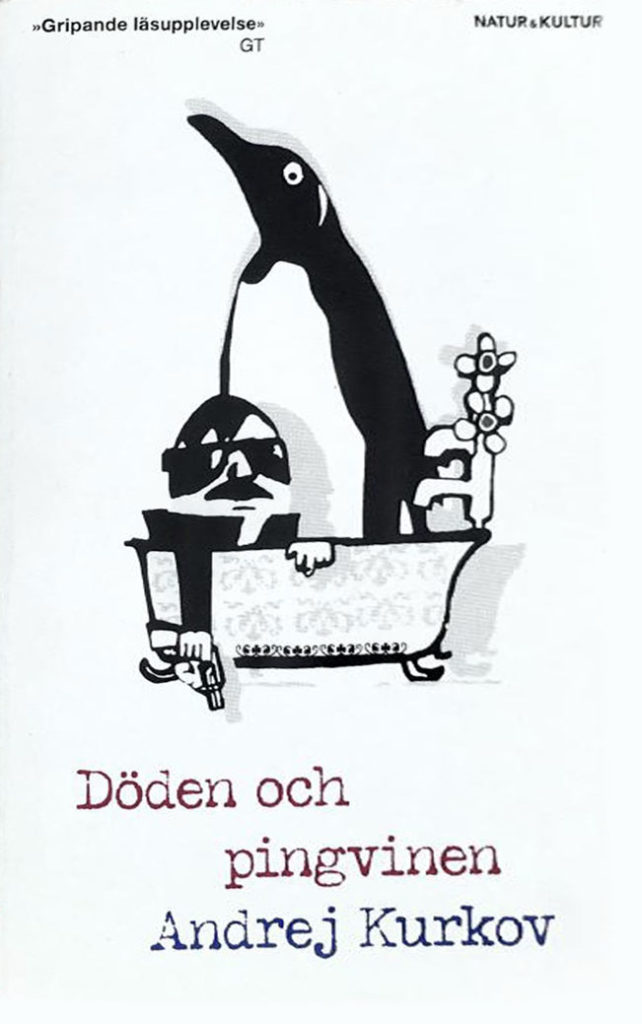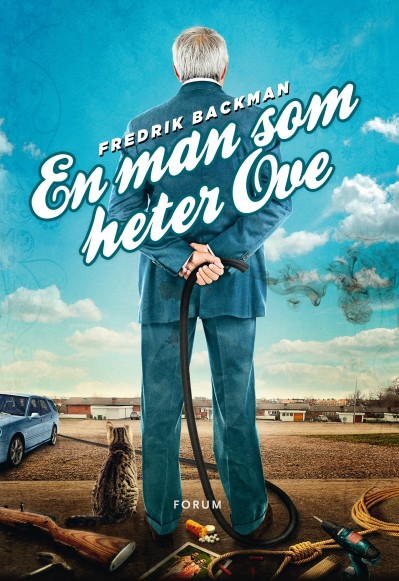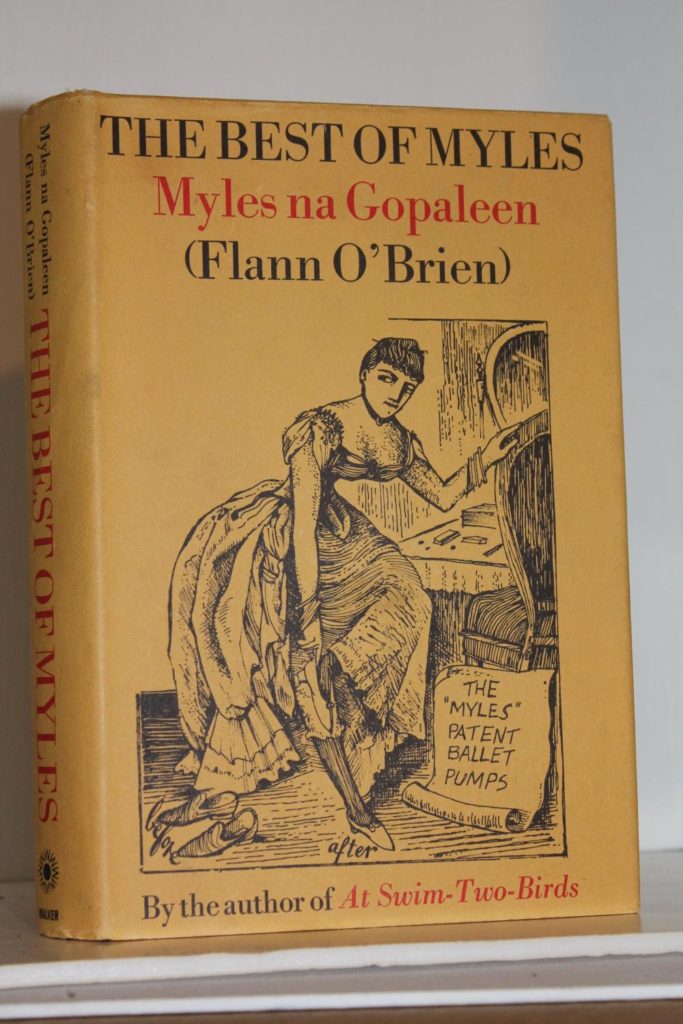I deeply resent that En man som heter Ove made me cry.
I’m inherently distrustful of media that makes me cry and my first instinct is always to take a step back and pick apart the story to see if it used any gimmicks or cheap tricks to manipulate me. (See, for example, Ali Smith’s Summer.) And while Fredrik Backman did a great job with strategically revealing the significant pieces of Ove’s backstory so that each moment hits with maximum impact, that’s good storytelling, not a cheap trick. Likewise certain story elements could have landed as overly melodramatic if the rest of the book wasn’t more or less farcical.
No, En man… hadn’t cheated to get those tears out of me. So why the resentment?
The book follows a man called Ove (quel surpris) in the weeks after being nudged into early retirement/laid off from his job. A chance accident with a car trailer and his mailbox gets him drawn into the lives of his new neighbors, and then gradually some of his older ones. In the process we flash back to the important episodes of Ove’s life up until that point, none of which I’ll go into detail here because they count as spoilers in my view. It’s not a spoiler, however, to note that the climactic point of conflict in the story is a faceoff between agents of the municipal social service authority on one side and Ove and his neighbors on the other. That’s when I had the thought: I wonder how Backman votes.
By that point in the book, it’s become clear that one of the consistent themes in the challenges Ove has faced in his life is “men in white shirts,” which function very clearly as a stand-in for the state. Which is fine and good; I’ve had my own very personal struggles with Swedish authorities and how they have either failed (from my perspective) to carry out their function or how they have enabled (again, from my perspective) individual bad actors to gatekeep access to resources that are essential for a decent quality of life.
However!
I’ve also had experiences where they (from my perspective) carried out their function, and in doing so furthered the best interests of myself or my loved ones. It has been, on the whole, a mixed bag of personal experiences.
The bag in En man… is not mixed; it’s uniformly pretty bad. Sometimes it’s a kind of bad that seems (sadly) pretty likely or reasonable, but other times it’s a kind of bad that made me raise a metaphorical eyebrow. Was it drawing from a lived experience, or was it drawing uncritically from the rumor mill about state overreach?
The biggest conflict out of all the “men in white shirts” conflicts is where a man in his 60s with pretty profound Alzheimer’s will spend the rest of his days: at home with his wife or institutionalized? For maximum drama, during this scene the Bad State Dude is present with three other assistants to (implicitly) physically overpower the elderly wife who wants to take care of her husband in their home herself. The state has a monopoly on violence, yes, yadda yadda yadda, but the intimidation here is so blatant that I had to wonder: in a real life version of this situation, is this how things would go?
(Contrast this scene with a recent story from Hem och hyra about how elderly individuals currently residing in regular apartments who apply for a spot in senior living facilities are often denied one, including people with severe dementia, Alzheimer’s, or depression. The state isn’t coming to kidnap people out of their homes but is rather refusing to let them move into one that they feel would be much more suitable.)
Backman also includes scenes with the inverse dynamics, so to speak: problems that could potentially be solved through the intervention of a state or municipal authority are instead addressed by individuals. The municipality refuses to build a wheelchair ramp at a school for one of the teachers, or to provide wheelchair adaptations for her kitchen, so Ove builds all of that himself. An abusive husband gets beaten up by Ove and another neighbor, after which the abuser just disappears out of his victim’s life forever, never to return*. After trying and failing to get problem tenants evicted, the same neighbor plants some narcotics on the property and then calls the cops. (I guess you can split that last one either way, since at the end of the day involving the police is a way of involving the state.)
*Rarely how it works out in real life situations of domestic violence!
It’s a bit like re-watching Ghostbusters with an adult’s political understanding and sensibilities: all those scenes with the suit from the Environmental Protection Agency have a tone that’s more than just comedy. Subtext and all of that.
That said, Sweden is not the US. A plot point (or recurring theme) in a novel about the uselessness, incompetence, or even malice, of municipal authorities maybe is less toxic or remarkable here because you don’t have the same years and years of toxic discourse in the culture. I’m not sure how all that works.
Therein lies the resentment, I suppose: the vague feeling that I got judo’d into agreeing with an implicit argument I wouldn’t have agreed with if it were presented more explicitly in something like an essay or opinion piece. That I had maybe fallen for a form of propaganda. The fact that I really liked the book despite myself.
Another contributing factor to the resentment for me is probably also the portrayal of Ove’s fat neighbor, Jimmy. While Ove’s fixation on the size of Jimmy’s body and constant narrative comment on it can be attributed to coming from a perspective character with certain beliefs about the world, it’s the author who chooses to portray Jimmy as constantly either eating or about to eat (and always too much, is the implication). This is presented as incidental comic relief, but it’s not particularly clever or original. None of the other secondary characters—the neighbors Ove ultimately comes to befriend—are reduced to such a flat trope, so Jimmy’s treatment feels out of place.
None of this is to be read like I think Backman has some kind of agenda with En man…, either. I emphatically do not. If he did, then the book wouldn’t have been nearly as good as it is because agendas ruin (most) books. But stories arise out of our beliefs about the world, from the grand to the banal, and there are enough recurring themes in this story that it makes me wonder if I can see the beliefs behind them. There’s even an extent to which I think I would probably agree with him in some of those beliefs. Way before I was ever wondering about Backman’s politics, I had the thought: is this the collective Swedish cultural fantasy? “This” being: wanting a friendly stranger to just land on your doorstep with nearly aggressive kindness and to forcibly include you in a social group.
It’s not at all surprising that En man… struck such a nerve with Swedes. Zakrisson mentions the book by name in Grannskapsrevolutionen and the research that she presents there supports the general background feeling in the novel: that the average person (Swede? Stockholmer?) feels isolated and lonely and disconnected from the people around them. And unlike some of the conflicts with the “white shirts” Ove has throughout the novel, the solution to that problem is maybe only possible at a grassroots, individual level. There’s no municipal authority that can come and declare by fiat that this or that collection of buildings is a community. Individual actors have to decide to say hello, or help change a bike tire, or whatever else. The happy ending of En man… no doubt reflects the world a lot of its readers wished they lived in, where they felt like part of a meaningful social network.
Anyway thank you for coming to my TEDtalk about a goofy comedy novel that clearly didn’t deserve THIS much critical analysis.





